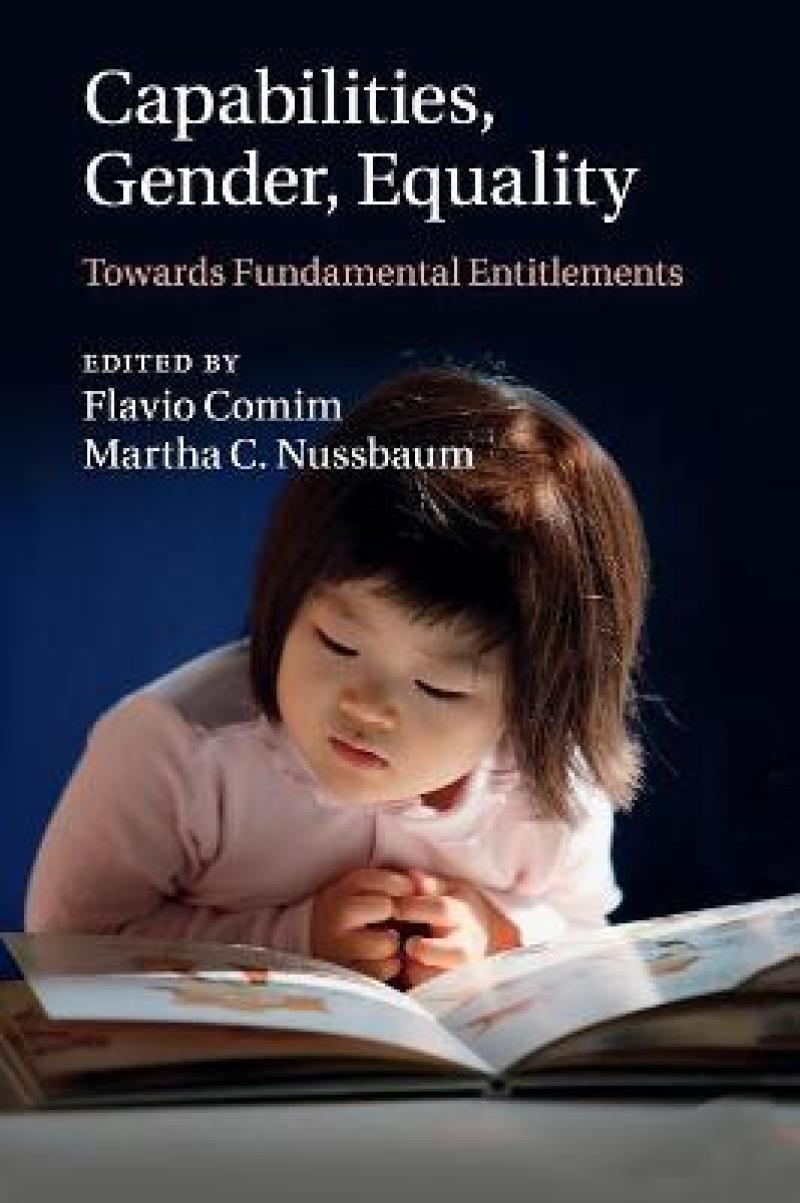Questions of gender, injustice and equality pervade all our lives, and as such, the capabilities or 'human development' approach to understanding well-being and basic political entitlements continues to be debated. In this thought-provoking book, a range of authors provide unique reflections on the capabilities approach and, specifically, Martha C. Nussbaum's contributions to issues of gender, equality and political liberalism. Moreover, the authors tackle a broad range of development issues, including those of religion, ecological and environmental justice, social justice, child care, disability and poverty. This is the first book to examine Nussbaum's work in political philosophy in such depth, bringing together a group of distinguished experts with diverse disciplinary perspectives. It also features a unique contribution from Nussbaum herself, in which she offers reactions to the discussion and her latest thoughts on the capabilities approach. Capabilities, Gender, Equality will interest a wide range of readers and policymakers interested in new human development policies.
Les mer
Preface; Introduction: capabilities, challenges, and the omnipresence of political liberalism Martha C. Nussbaum; Part I. The Capabilities Approach: 1. Perfectionist liberalism and political liberalism Martha C. Nussbaum; 2. Rawlsian social-contract theory and the severely disabled Henry S. Richardson; 3. Logos, pathos and ethos in Martha C. Nussbaum's capabilities approach to human development Des Gasper; 4. Building capabilities: a new paradigm for human development Flavio Comim; 5. Capabilities or functionings? Anatomy of a debate Marc Fleurbaey; 6. From humans to all of life: Nussbaum's transformation of dignity Jeremy Bendik-Keymer; Part II. Gender: 7. Questioning the gender-based division of labour: the contribution of the capabilities approach to feminist economics Ulrike Knoblock; 8. Primary goods, capabilities, and the millennium development target for gender equity in education Elaine Unterhalter and Harry Brighouse; 9. The weight of institutions on women's capabilities: how far can microfinance help? Muriel Gilardone, Isabelle Guérin and Jane Palier; 10. The capabilities of women: towards an alternative framework for development Santosh Mehrotra; 11. Applying the capabilities approach to disability, poverty, and gender Patricia Welch Saleeby; 12. Educational transformation, gender justice and Nussbaum's capabilities Melanie Walker; 13. The social contract, unpaid child care and women's income capability Hilde Bojer; Part III. Equality: 14. Lists and thresholds: comparing the Doyal–Gough theory of human need with Nussbaum's capabilities approach Ian Gough; 15. Nussbaum, Rawls, and the ecological limits of justice: using capability ceilings to resolve capability conflicts Breena Holland; 16. Social justice and Nussbaum's concept of the person John M. Alexander; 17. God and Martha C. Nussbaum: towards a Reformed Christian view of capabilities Jonathan Warner; Index.
Les mer
'This wonderful collection of essays provides an intellectual feast. The authors engage deeply with Nussbaum's capability approach (as distinct from Amartya Sen's capability approach) from a wide range of perspectives - political philosophy, gender, environment, poverty, justice - revealing both Nussbaum's originality and their own insights. You wish yourself immediately in the same room, conversing.' Bina Agarwal
Les mer
Provides unique reflections on the capability approach and its relevance to new human development policies and political liberalism.
Produktdetaljer
ISBN
9781108468831
Publisert
2018-08-30
Utgiver
Vendor
Cambridge University Press
Vekt
690 gr
Høyde
150 mm
Bredde
225 mm
Dybde
25 mm
Aldersnivå
P, 06
Språk
Product language
Engelsk
Format
Product format
Heftet
Antall sider
482
